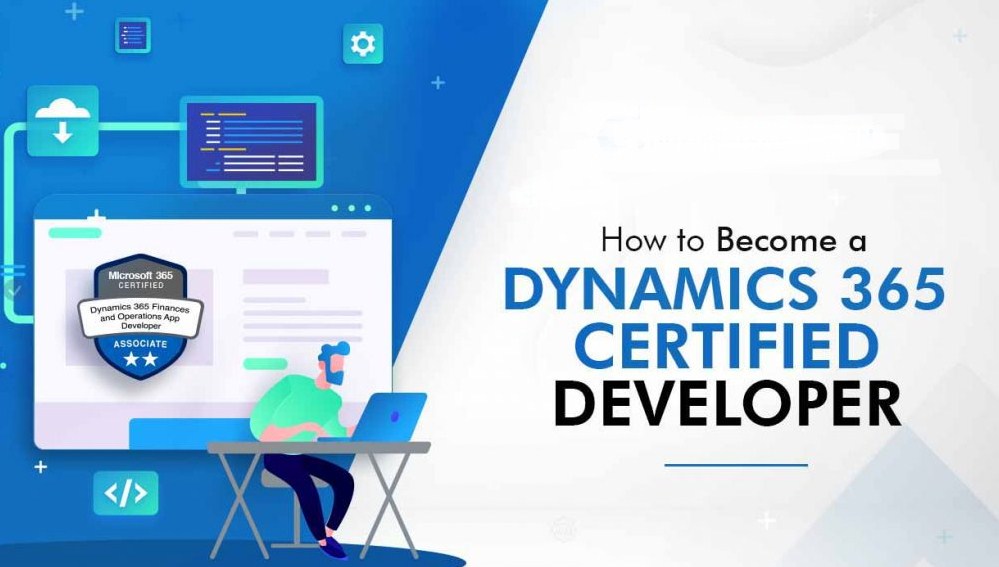Microsoft Dynamics CRM Developer – In today’s competitive business landscape, Customer Relationship Management (CRM) systems are vital for companies aiming to streamline operations and build stronger customer relationships. Among the leading CRM platforms is Microsoft Dynamics CRM, known for its robust features and adaptability across various industries. A Microsoft Dynamics CRM Developer plays a pivotal role in customizing and implementing this platform to fit the unique needs of a business.

Whether you’re a business owner, manager, or developer, understanding how to leverage Microsoft Dynamics CRM through the expertise of a skilled developer can significantly enhance your customer relationship strategies. In this article, we’ll cover everything you need to know about Microsoft Dynamics CRM Developer, including the benefits, use cases, and the top products available in the market.
What is Microsoft Dynamics CRM?
Microsoft Dynamics CRM is a suite of enterprise resource planning (ERP) and customer relationship management (CRM) applications developed by Microsoft. It allows businesses to automate their sales, marketing, and customer service processes to provide better customer experiences, improve business processes, and boost profitability.
Some of the key modules in Microsoft Dynamics CRM include:
- Sales Automation
- Customer Service
- Marketing Automation
- Field Service
- Project Service Automation
The flexibility of Microsoft Dynamics CRM allows businesses to tailor the system to their specific needs through customization and development. This is where a Microsoft Dynamics CRM Developer comes into play.
Why You Need a Microsoft Dynamics CRM Developer
A Microsoft Dynamics CRM Developer is a professional skilled in customizing and extending Microsoft Dynamics CRM’s functionality. Here are some compelling reasons why businesses need a developer:
- Tailored Solutions: Every business has unique needs. A CRM developer can customize workflows, dashboards, and modules to fit these needs perfectly.
- Integration with Other Systems: A Dynamics CRM developer can integrate the system with other third-party software like ERP, email marketing tools, or financial software.
- Improved User Experience: Developers can optimize the CRM system’s interface and user experience, ensuring that employees and customers interact seamlessly.
- Enhanced Automation: With the help of a CRM developer, you can automate repetitive tasks, like sending follow-up emails or scheduling appointments, saving time and reducing errors.
- Scalability: As your business grows, you’ll need a CRM system that can scale. A developer ensures that Microsoft Dynamics CRM can grow with your business, maintaining high performance even with increasing data.
Top Products for Microsoft Dynamics CRM Development
Now, let’s explore some products and tools that are essential for developers working with Microsoft Dynamics CRM.

1. KingswaySoft – Integration Solution for Microsoft Dynamics CRM
KingswaySoft provides an integration solution for Microsoft Dynamics CRM that allows users to easily connect with external data sources and systems. It is widely used by developers for ETL (Extract, Transform, Load) processes, making data integration seamless and more efficient.
- Key Features:
- Integration with databases, cloud storage, and other CRM tools.
- Data transformation tools for cleaning and standardizing data.
- High performance even with large data volumes.
- Pros:
- Easy-to-use interface.
- Support for a wide range of integrations.
- Powerful data transformation tools.
- Cons:
- Pricing can be on the higher side for small businesses.
- Price: Starts at $1,195 per year.
Check KingswaySoft here
2. ClickDimensions – Marketing Automation for Microsoft Dynamics CRM
ClickDimensions is a marketing automation platform built specifically for Microsoft Dynamics CRM. It integrates seamlessly with Dynamics CRM and provides tools for email marketing, lead nurturing, social media management, and more.
- Key Features:
- Email marketing and automation.
- Lead scoring and nurturing.
- Web forms, surveys, and landing pages.
- Pros:
- Direct integration with Dynamics CRM.
- Comprehensive marketing automation features.
- Excellent customer support.
- Cons:
- The platform may not be ideal for businesses with complex marketing needs.
- Price: Starts at $350/month.
Check ClickDimensions here
3. CRM-Connect – Custom Development Tool for Dynamics CRM
CRM-Connect is a powerful tool designed to assist developers in creating custom solutions for Microsoft Dynamics CRM. It helps integrate Dynamics CRM with other applications, manage workflows, and automate processes to improve efficiency.
- Key Features:
- Easy integration with third-party applications.
- Workflow automation.
- Customizable user interface.
- Pros:
- Great for custom development.
- Streamlines business processes.
- Affordable pricing.
- Cons:
- Requires technical knowledge for setup and configuration.
- Price: $149/month.
Check CRM-Connect here
Comparison Table
| Product | Use Case | Features | Price | Pros | Cons |
|---|---|---|---|---|---|
| KingswaySoft | Data integration and ETL | Data transformation, third-party integrations | Starts at $1,195/year | Easy-to-use, wide integration options | Expensive for small businesses |
| ClickDimensions | Marketing automation for CRM users | Email automation, lead nurturing, web forms | Starts at $350/month | Direct CRM integration, great support | Not ideal for very complex marketing needs |
| CRM-Connect | Custom development and workflow automation | Workflow automation, UI customization | $149/month | Affordable, streamlines processes | Requires technical setup |
Benefits of Microsoft Dynamics CRM
1. Improved Customer Engagement
Microsoft Dynamics CRM helps you understand your customers’ needs better, allowing for more personalized communication and offering relevant products/services. By integrating customer touchpoints, such as email, social media, and support channels, you can build a more engaged customer base.
2. Increased Sales and Marketing Efficiency
With marketing automation, sales teams can focus on high-value activities, such as closing deals, rather than chasing leads manually. Lead scoring, automated emails, and segmentation help convert prospects into paying customers more efficiently.
3. Data-Driven Decisions
With the powerful analytics tools in Microsoft Dynamics CRM, businesses can collect data on customer behavior, sales trends, and marketing campaign performance. This data can be analyzed to make informed decisions that will improve operations.
4. Better Collaboration
Microsoft Dynamics CRM integrates seamlessly with other Microsoft tools like Outlook, Teams, and Excel, enabling better collaboration across teams. Sales, marketing, and support teams can easily share information and work together to meet customer needs.
How to Buy Microsoft Dynamics CRM and Developer Services
Where to Buy
You can purchase Microsoft Dynamics CRM through the official Microsoft website. For developer services, you can find skilled Microsoft Dynamics CRM developers through platforms like Upwork, Toptal, or directly through Microsoft’s certified partner network.
How to Buy
Buying Microsoft Dynamics CRM is straightforward:
- Visit the Microsoft Dynamics 365 website.
- Choose your CRM plan based on the size of your business.
- Purchase directly through the site or request a quote if you need customizations.
- You can also hire a developer from the Microsoft partner network or freelance platforms to help you customize your CRM.
FAQs
1. What is the role of a Microsoft Dynamics CRM developer?
A Microsoft Dynamics CRM developer customizes and integrates Dynamics CRM to meet the specific needs of a business. They handle tasks like data integration, custom workflows, and interface modifications.
2. How much does it cost to hire a Microsoft Dynamics CRM developer?
The cost of hiring a Microsoft Dynamics CRM developer varies based on experience and location. Freelance developers may charge between $50 and $150 per hour, while full-time developers can earn between $70,000 and $120,000 annually.
3. Can Microsoft Dynamics CRM be used by small businesses?
Yes, Microsoft Dynamics CRM is scalable and can be customized to meet the needs of both small businesses and large enterprises.
4. What is the difference between Microsoft Dynamics CRM and other CRM platforms like Salesforce?
Microsoft Dynamics CRM offers deep integration with Microsoft Office tools, making it a good choice for companies already using Microsoft products. Salesforce, on the other hand, is known for its customization options and app marketplace.
5. How can I integrate Microsoft Dynamics CRM with my other tools?
Microsoft Dynamics CRM can be integrated with third-party applications through APIs, middleware, or using tools like KingswaySoft for data integration.
Conclusion
A Microsoft Dynamics CRM Developer can unlock the full potential of Microsoft Dynamics CRM for your business, ensuring seamless customization, integration, and automation. Whether you’re automating workflows, optimizing marketing strategies, or scaling your business, the benefits of Dynamics CRM are clear. With the right developer and tools, businesses can improve customer relationships, drive sales, and enhance operational efficiency. Start exploring your options today!
Read More >>>
- Microsoft Dynamics CRM Pricing: Comprehensive Guide, Benefits & How to Buy in 2025
- Microsoft Dynamics CRM Certification: Benefits, Products, and How to Get Certified